VWT was established by Hannie Kiprono Biwott, a retired secondary school teacher affectionately known as Mrs. Kiprono. Born to a Jewish mother and Catholic father in Amsterdam during World War II, she was raised in the aftermath of history’s most destructive war, a time when families struggled to survive. A bright student and beneficiary of scholarships, Hannie quickly realized the potential for education and the opportunity to change lives and better the world. After starting her career as a teacher in Australia, in one of Melbourne’s worst slums, she followed her Kenyan-born husband to Kenya in 1965 and continued teaching in rural and low-income schools.
The Van Woustraat Trust is a non-profit organization that supports high achievers through a variety of educational and cultural initiatives. We see each new day as an opportunity to help build a culture based on principles of equal-opportunity, knowledge-sharing, community and tolerance. We help where help is needed.
A BRIGHT SPARK
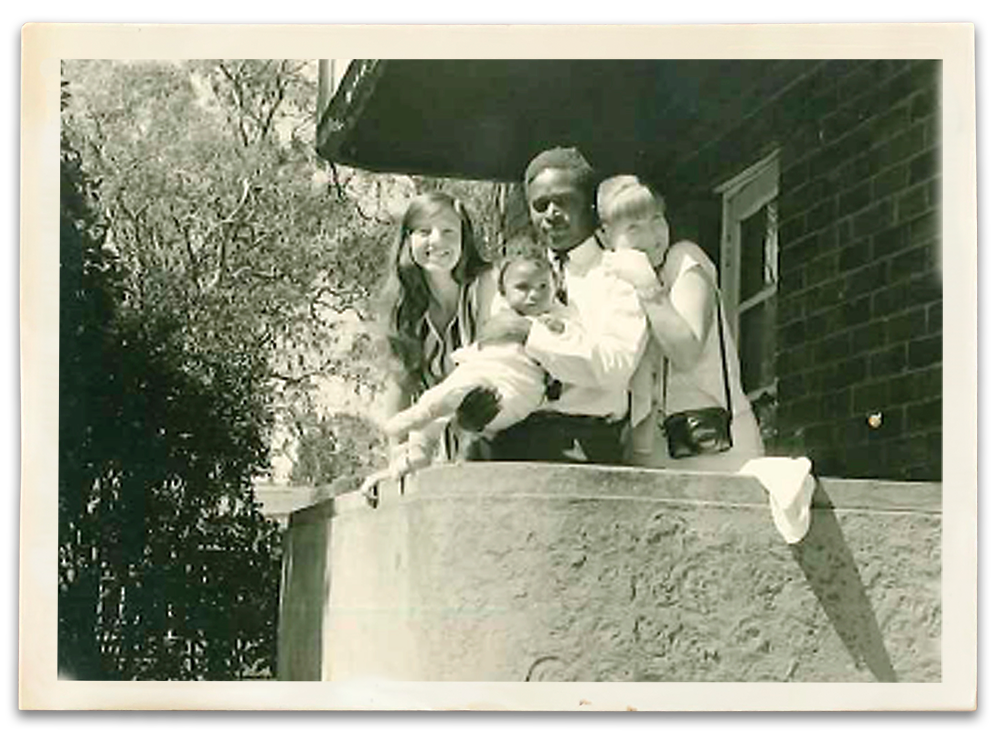
IN HANNIE’S WORDS
I was supposed to be born in the Jewish hospital of Amsterdam on January 22, 1943. But that is not what happened. This was the day the Germans suddenly deported all patients and staff from all the Jewish medical institutions. My mother, already in labour, ran out the hospital’s back door as the Germans entered through the front door. She returned to the same hospital a few days later where I was eventually born on February 8th, two weeks before the hospital was closed. In August of that same year, the bulk of the remaining Jews were deported from Amsterdam. As my mother stood in her doorway waiting to be collected, a neighbour, risking his life, argued with the soldiers and insisted there were no Jews in the building. The exhausted soldiers crossed my mother and me off the list. We were declared dead. This is how we survived.
Hannie Kiprono Biwott,
Founder of The Van Woustraat Trust
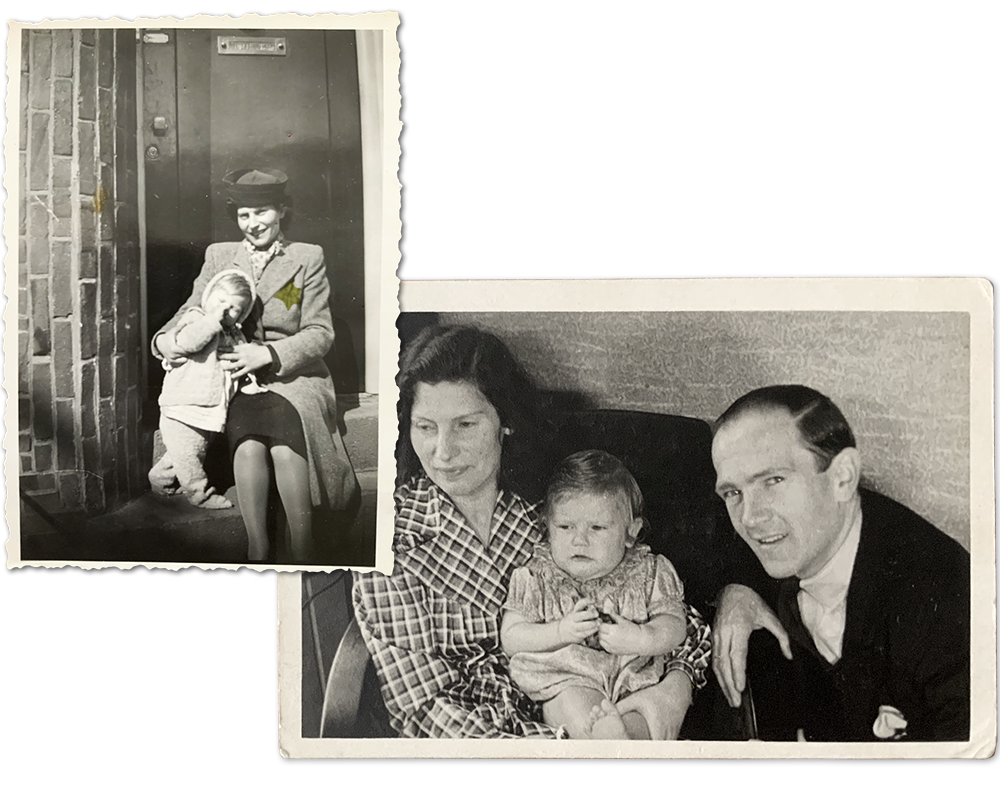
BRAVERY IN IMPOSSIBLE TIMES
By September 1944 no more food came into Amsterdam. All trains had been stopped. Food was rationed, the population starved. My father was conscripted into forced labour by the Nazis.
Desperate to feed us, my mother ignored the curfew and regularly snuck through the streets of Amsterdam at four o’clock in the morning, trading her possessions and begging for milk to keep me alive. She did not wear her yellow star nor carry her pass with a ‘J’ on, identifying her as a Jew. This was a dangerous and brave thing to do.
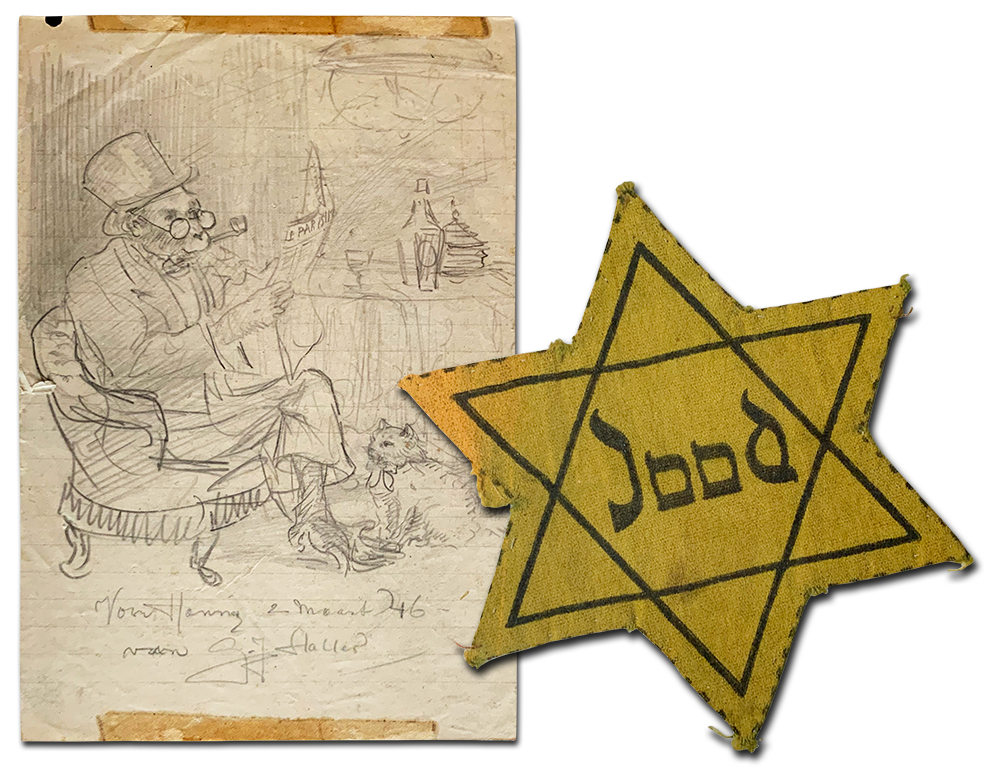
AFTER THE STORM
The years immediately following the end of the war were very challenging for the people of Amsterdam. I was very aware of the struggle of every family to raise their children to be dignified community members. To provide us with a better environment, my parents moved our family to Van Woustraat street where we could safely play on the wide, clean streets of the neighbourhood. As a young teenager I developed a keen interest and knowledge in stamps. On Saturday afternoons, I would ride my bicycle to the stamp market and trade with veteran dealers and collectors who recognized my expertise on the subject and treated me as an equal. It was the beginning of my entrepreneurial spirit. Van Woustraat was a wonderful place to grow up, which is why I named the trust after it.
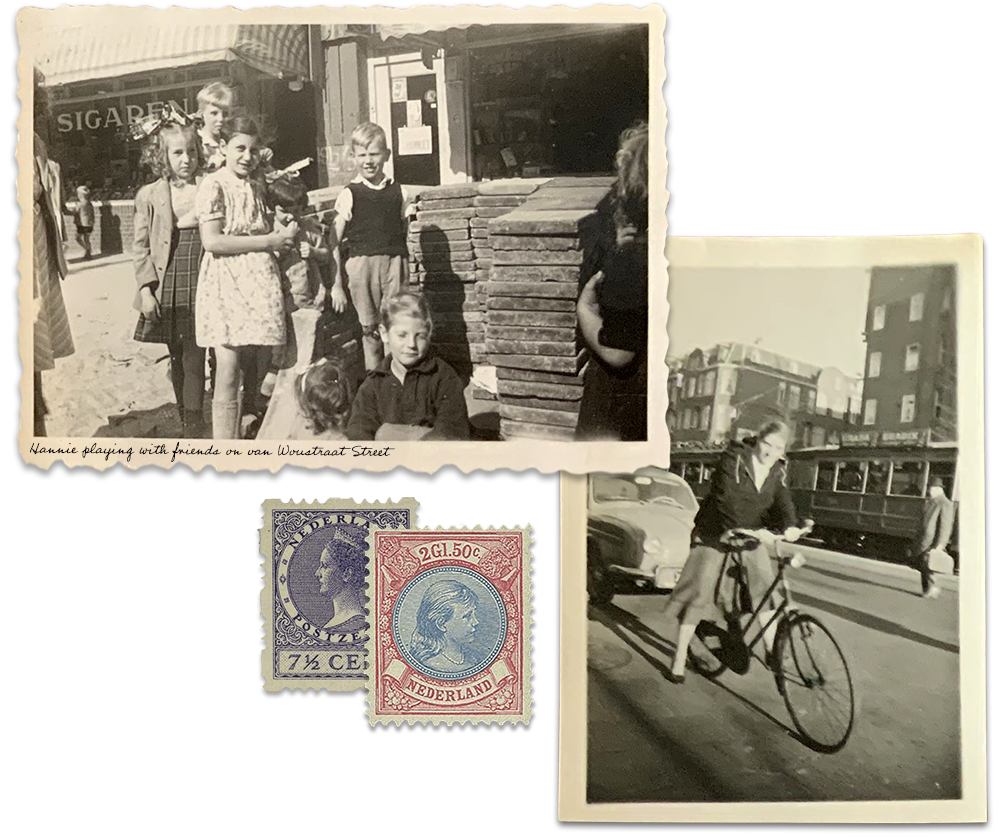
A SEMINAL JOURNEY
In 1957, my family migrated to Australia where I finished my schooling and began my career as a teacher. Though I longed to travel to Israel and pursue my Zionist dream, I chose love and followed my new Kenyan husband back to his home country in 1965. There we began a new life. I taught at several government schools, (including Loretto Convent Valley Road, Embu Girls Secondary, Nkubu Boys High School, Dagoretti Boys High, Huruma Girls Secondary, Jamhuri Boys Secondary, and Pumwany Boys Secondary) and after retiring due to health reasons, I ran a perfumery and trained Kenyan women to successfully run a business. During my 54 years as a resident of Kenya, married to a Kenyan and mother of two mixed-race children, I encountered both tolerance and intolerance. On the one hand, I felt warmly accepted by a variety of Kenyans. On the other hand, I experienced racism, tribalism, and rejection from others, inside and outside of Kenya.
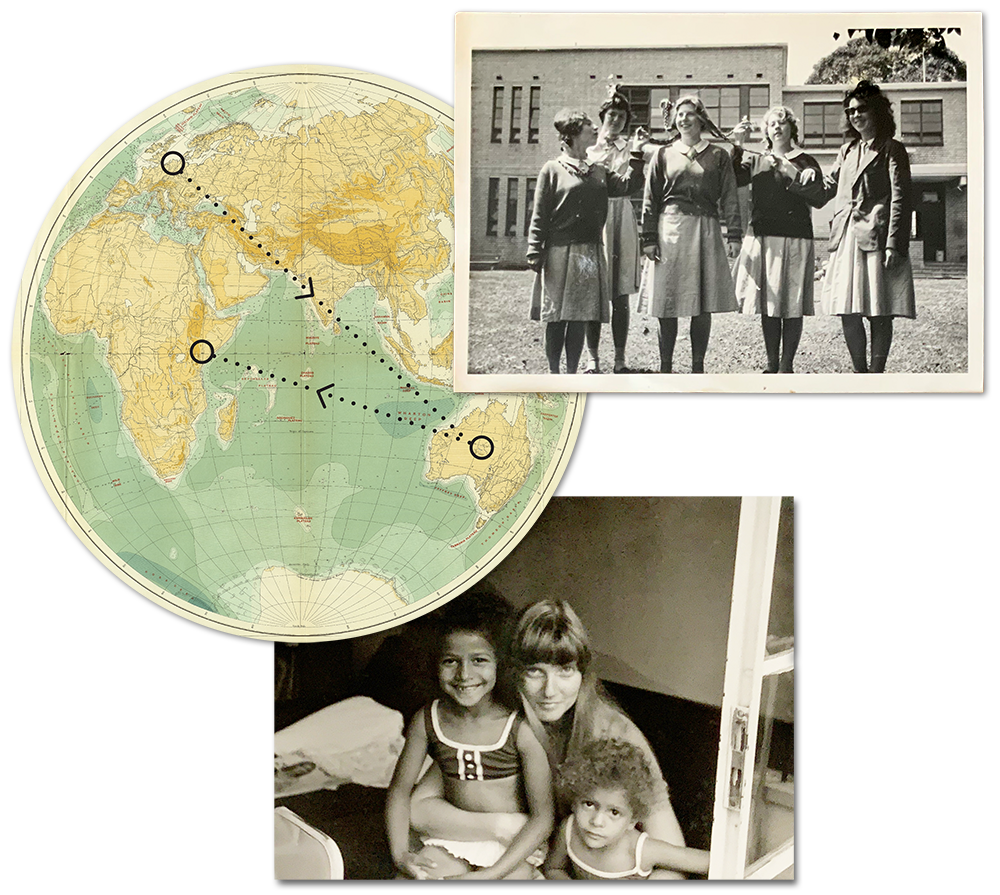
DEVOTION TO A BETTER FUTURE
With my grandchildren clearly on the road to success, I have devoted the remainder of my life to help others—to support education, encourage cooperation, and foster human connection. I strongly believe that only by understanding and appreciating the background of others can we ever hope to eradicate the intolerance, which leads to injustice and unforeseen consequences.
Mrs. Kiprono took over from our Indian teacher, Mr. Shama, whose teaching was based on rote memorization. When she arrived, she really challenged us to think broadly, rather than just memorize. Eventually, her approach helped us become better thinkers. So I thank you very much, madam. You played an important role in my history.
-Ambassador Francis Muthaura, Chairman of the Kenya Revenue Authority and former pupil of Hannie’s
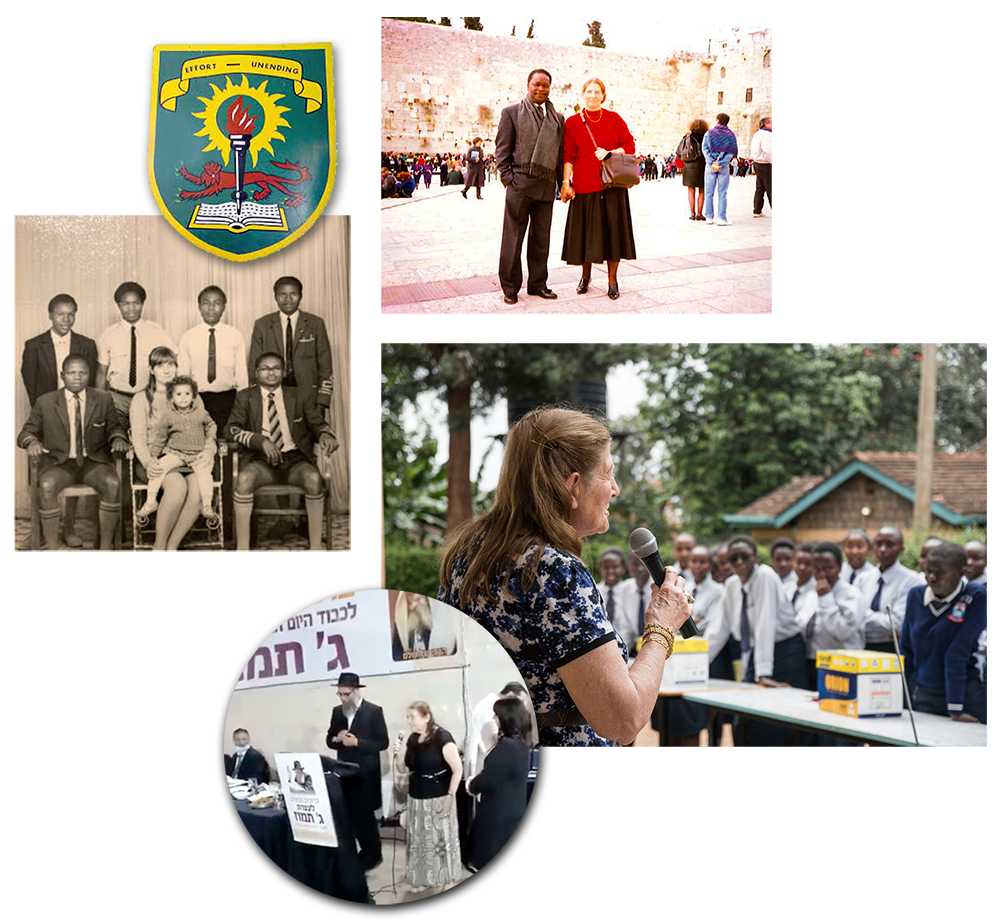
The Van Woustraat Trust is a non-profit organization that supports high achievers through a variety of educational and cultural initiatives. We see each new day as an opportunity to help build a culture based on principles of equal-opportunity, knowledge-sharing, community and tolerance. We help where help is needed.
A BRIGHT SPARK
VWT was established by Hannie Kiprono Biwott, a retired secondary school teacher affectionately known as Mrs. Kiprono. Born to a Jewish mother and Catholic father in Amsterdam during World War II, she was raised in the aftermath of history’s most destructive war, a time when families struggled to survive. A bright student and beneficiary of scholarships, Hannie quickly realized the potential for education and the opportunity to change lives and better the world. After starting her career as a teacher in Australia, in one of Melbourne’s worst slums, she followed her Kenyan-born husband to Kenya in 1965 and continued teaching in rural and low-income schools.

IN HANNIE’S WORDS
I was supposed to be born in the Jewish hospital of Amsterdam on January 22, 1943. But that is not what happened. This was the day the Germans suddenly deported all patients and staff from all the Jewish medical institutions. My mother, already in labour, ran out the hospital’s back door as the Germans entered through the front door. She returned to the same hospital a few days later where I was eventually born on February 8th, two weeks before the hospital was closed. In August of that same year, the bulk of the remaining Jews were deported from Amsterdam. As my mother stood in her doorway waiting to be collected, a neighbour, risking his life, argued with the soldiers and insisted there were no Jews in the building. The exhausted soldiers crossed my mother and me off the list. We were declared dead. This is how we survived.
Hannie Kiprono Biwott,
Founder of The Van Woustraat Trust

BRAVERY IN IMPOSSIBLE TIMES
By September 1944 no more food came into Amsterdam. All trains had been stopped. Food was rationed, the population starved. My father was conscripted into forced labour by the Nazis.
Desperate to feed us, my mother ignored the curfew and regularly snuck through the streets of Amsterdam at four o’clock in the morning, trading her possessions and begging for milk to keep me alive. She did not wear her yellow star nor carry her pass with a ‘J’ on, identifying her as a Jew. This was a dangerous and brave thing to do.

AFTER THE STORM
The years immediately following the end of the war were very challenging for the people of Amsterdam. I was very aware of the struggle of every family to raise their children to be dignified community members. To provide us with a better environment, my parents moved our family to Van Woustraat street where we could safely play on the wide, clean streets of the neighbourhood. As a young teenager I developed a keen interest and knowledge in stamps. On Saturday afternoons, I would ride my bicycle to the stamp market and trade with veteran dealers and collectors who recognized my expertise on the subject and treated me as an equal. It was the beginning of my entrepreneurial spirit. Van Woustraat was a wonderful place to grow up, which is why I named the trust after it.

A SEMINAL JOURNEY
In 1957, my family migrated to Australia where I finished my schooling and began my career as a teacher. Though I longed to travel to Israel and pursue my Zionist dream, I chose love and followed my new Kenyan husband back to his home country in 1965. There we began a new life. I taught at several government schools, (including Loretto Convent Valley Road, Embu Girls Secondary, Nkubu Boys High School, Dagoretti Boys High, Huruma Girls Secondary, Jamhuri Boys Secondary, and Pumwany Boys Secondary) and after retiring due to health reasons, I ran a perfumery and trained Kenyan women to successfully run a business. During my 54 years as a resident of Kenya, married to a Kenyan and mother of two mixed-race children, I encountered both tolerance and intolerance. On the one hand, I felt warmly accepted by a variety of Kenyans. On the other hand, I experienced racism, tribalism, and rejection from others, inside and outside of Kenya.

DEVOTION TO A BETTER FUTURE
With my grandchildren clearly on the road to success, I have devoted the remainder of my life to help others—to support education, encourage cooperation, and foster human connection. I strongly believe that only by understanding and appreciating the background of others can we ever hope to eradicate the intolerance, which leads to injustice and unforeseen consequences.
Mrs. Kiprono took over from our Indian teacher, Mr. Shama, whose teaching was based on rote memorization. When she arrived, she really challenged us to think broadly, rather than just memorize. Eventually, her approach helped us become better thinkers. So I thank you very much, madam. You played an important role in my history.
-Ambassador Francis Muthaura, Chairman of the Kenya Revenue Authority and former pupil of Hannie’s
